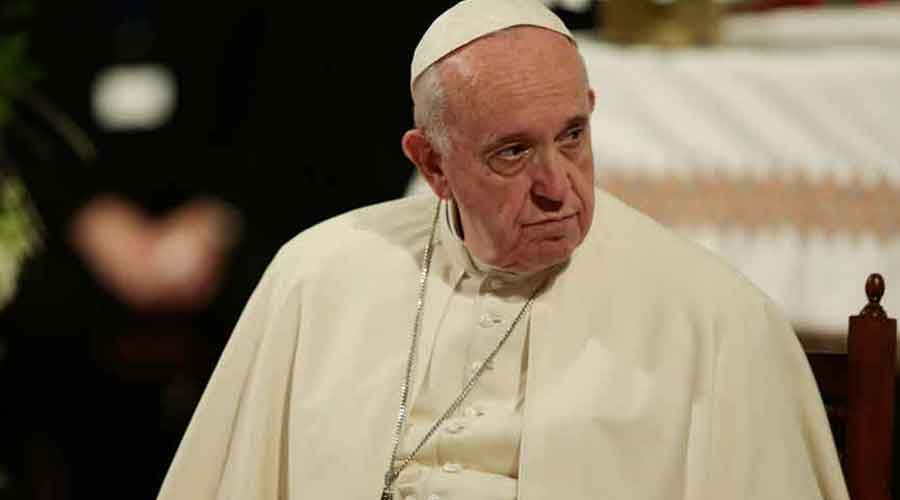Pope Francis said on Saturday he was considering a trip to Kyiv and implicitly criticised Russian President Vladimir Putin over the invasion of Ukraine, saying a “potentate” was fomenting conflict for nationalist interests.
Francis made the comments, first to reporters on the plane taking him to Malta for a two-day visit, and then in a hard-hitting speech in the island’s presidential palace that left little doubt who he was referring to.
“From the east of Europe, from the land of the sunrise, the dark shadows of war have now spread. We had thought that invasions of other countries, savage street fighting and atomic threats were grim memories of a distant past,” the pope said.
Moscow denies targeting civilians in the action it launched on February 24, which it dubs a “special military operation” designed not to occupy territory but to demilitarise and “denazify” its neighbour. Francis has already rejected that terminology, calling it a war.
“However, the icy winds of war, which bring only death, destruction and hatred in their wake, have swept down powerfully upon the lives of many people and affected us all,” Francis said.
“Once again, some potentate, sadly caught up in anachronistic claims of nationalist interests, is provoking and fomenting conflicts, whereas ordinary people sense the need to build a future that, will either be shared, or not be at all,” he said, without mentioning Putin by name.
Francis’s voice was strong but he sat to deliver his speech. For the first time in his 36 trips abroad, a flare-up of pain in his knee had forced him to use a freight lift to board the plane in Rome and disembark in Valletta — to avoid “unnecessary strain”, Vatican spokesman Matteo Bruni said.
The pope, who was limping as he walked in the presidential palace of the predominantly Catholic island, has already strongly condemned what he has called an “unjustified aggression” and denounced “atrocities” in the war.
But he has only referred to Russia directly in prayers, such as during a special global event for peace on March 25.
“Now in the night of the war that is fallen upon humanity, let us not allow the dream of peace to fade,” he said.
He again criticised the armaments industry and expressed distress at the fading enthusiasm for peace that emerged after World War II, saying the clash of interests had “re-emerged powerfully in the seductions of autocracy, new forms of imperialism (and) widespread aggressiveness.”











